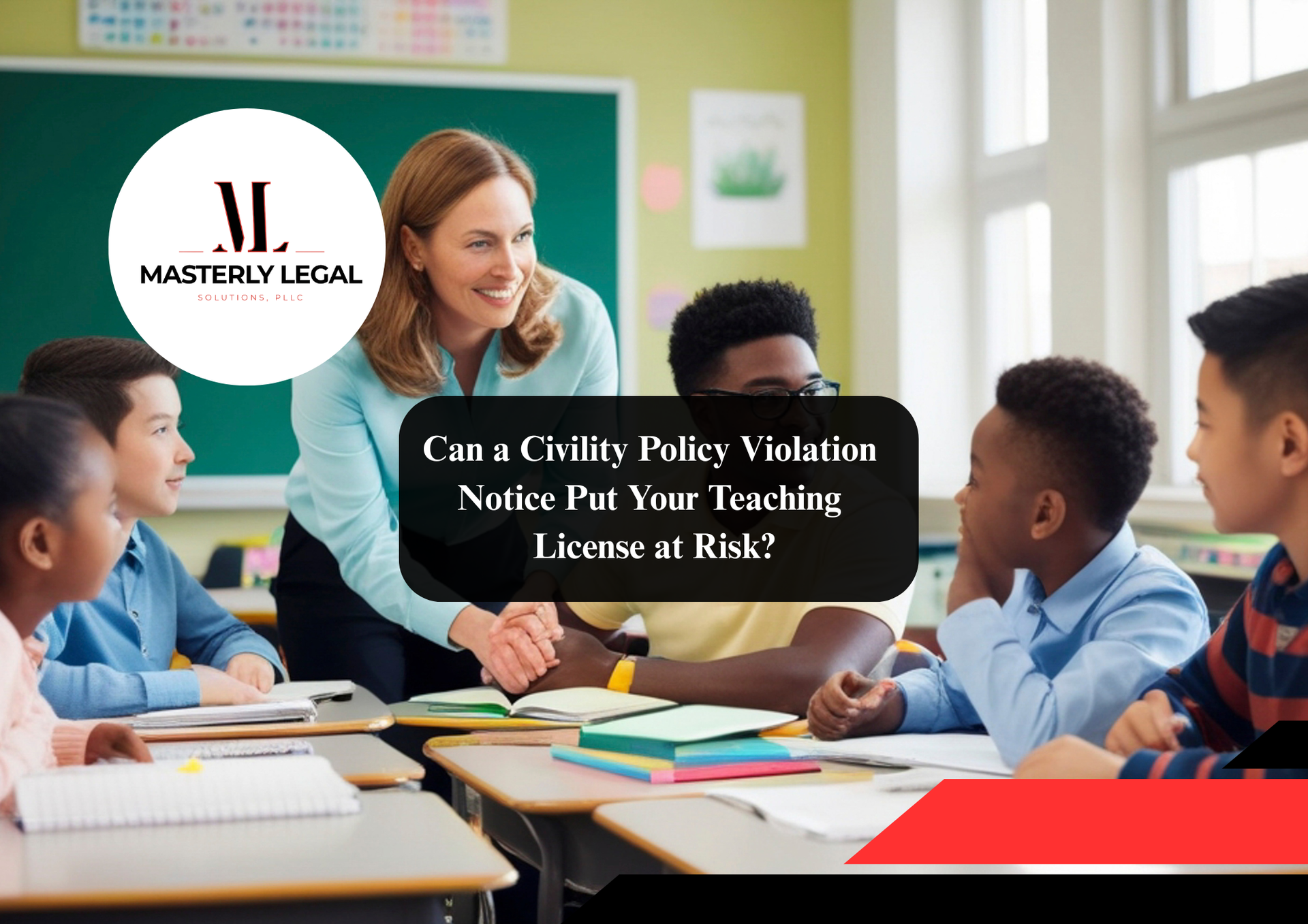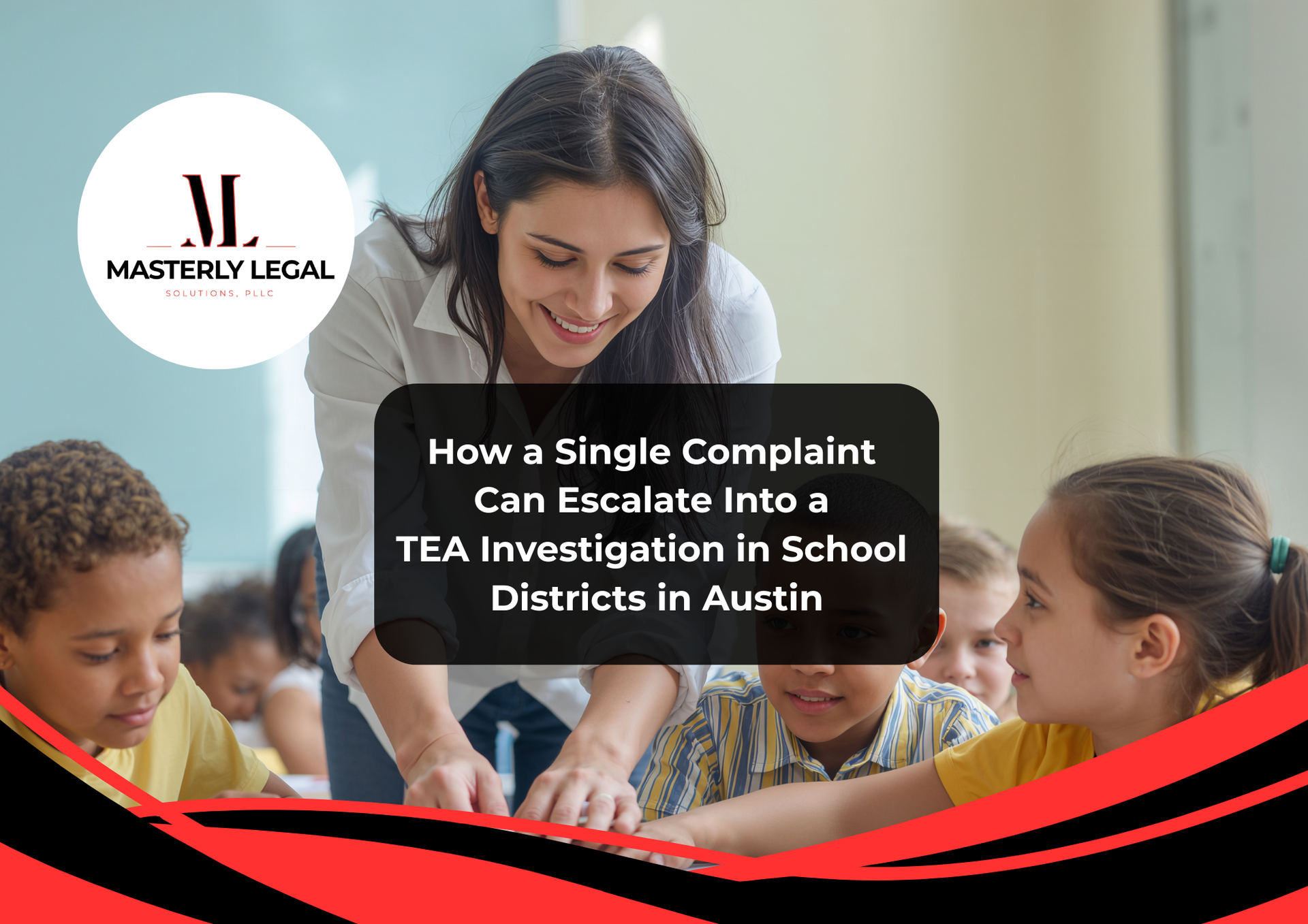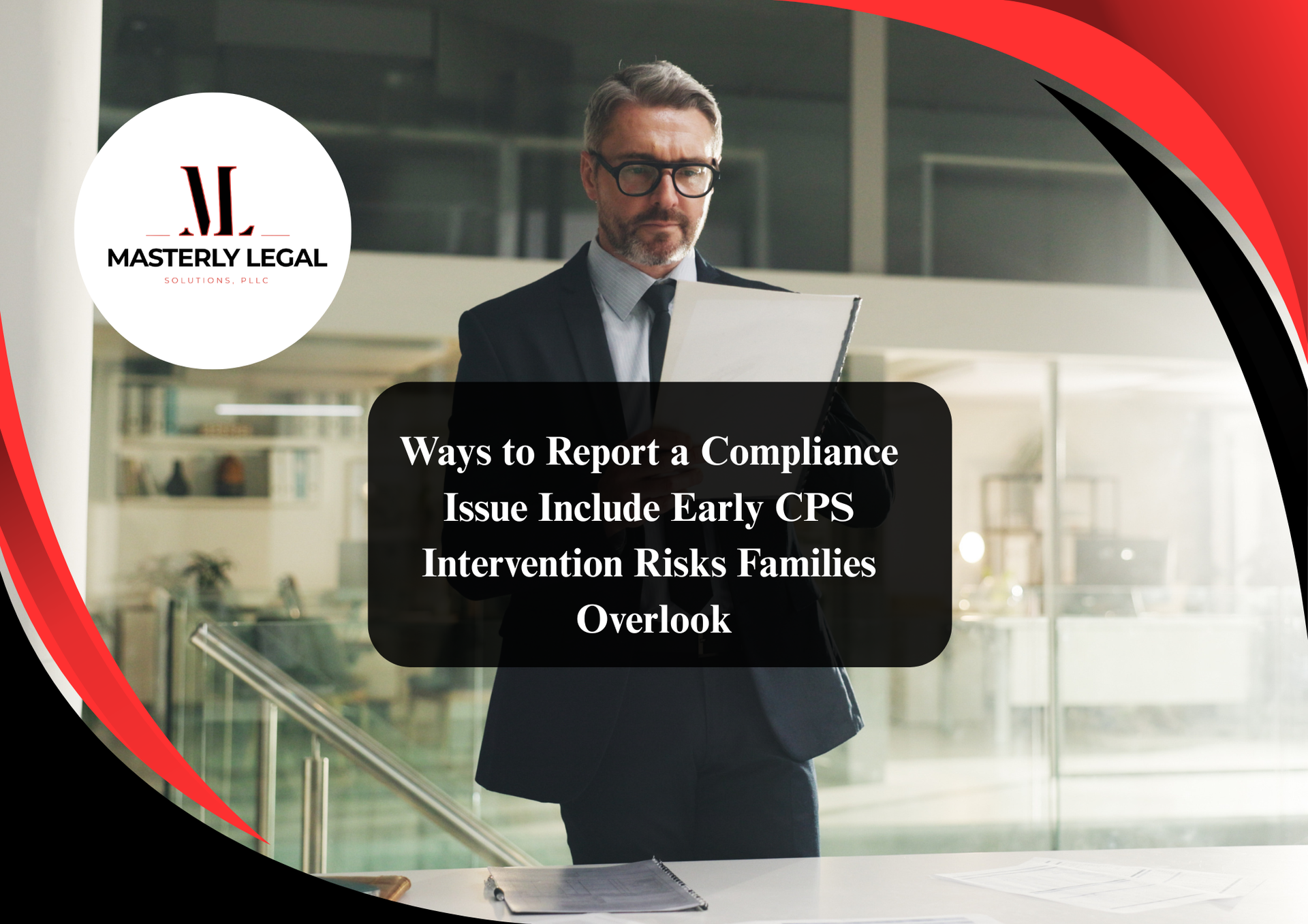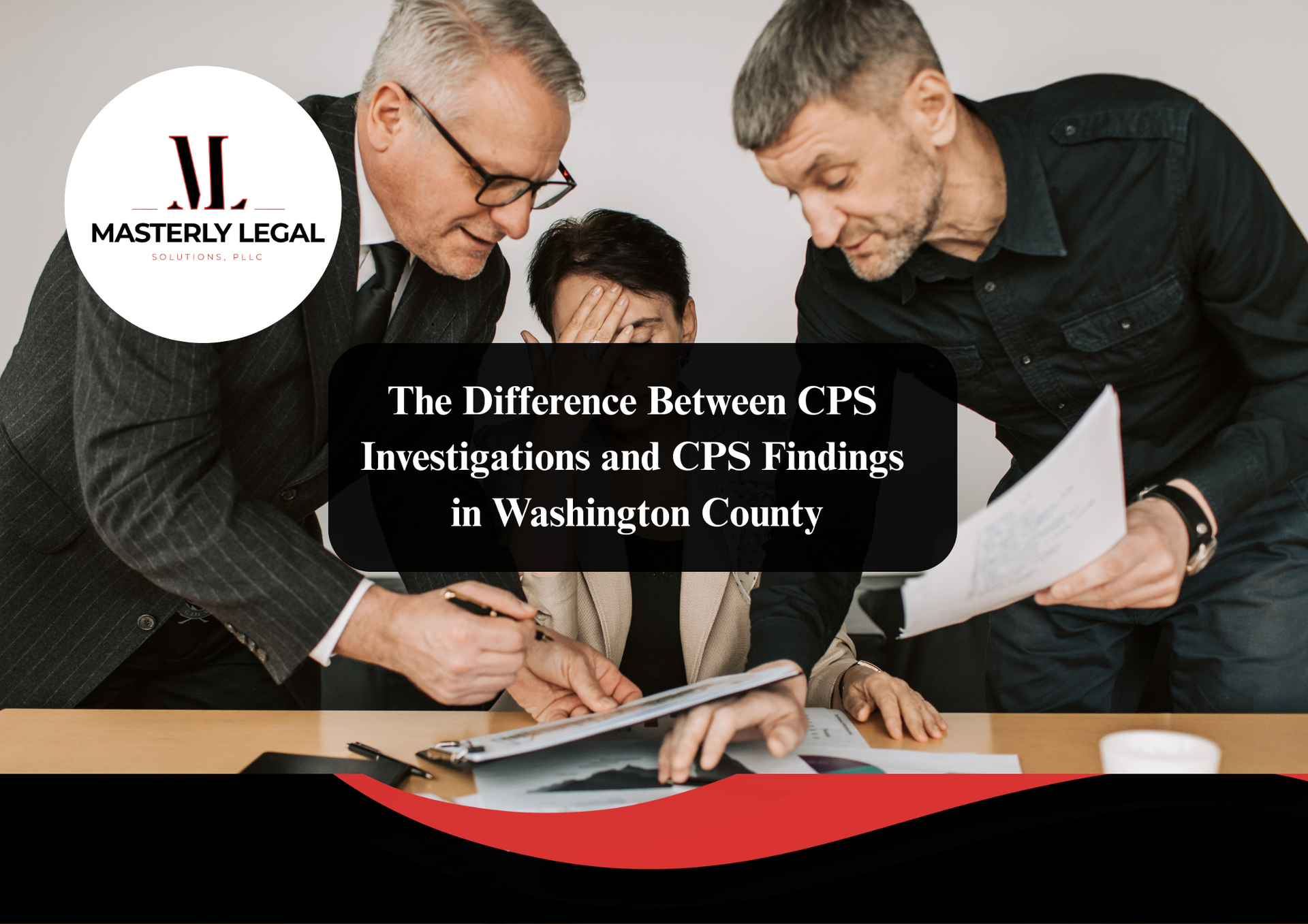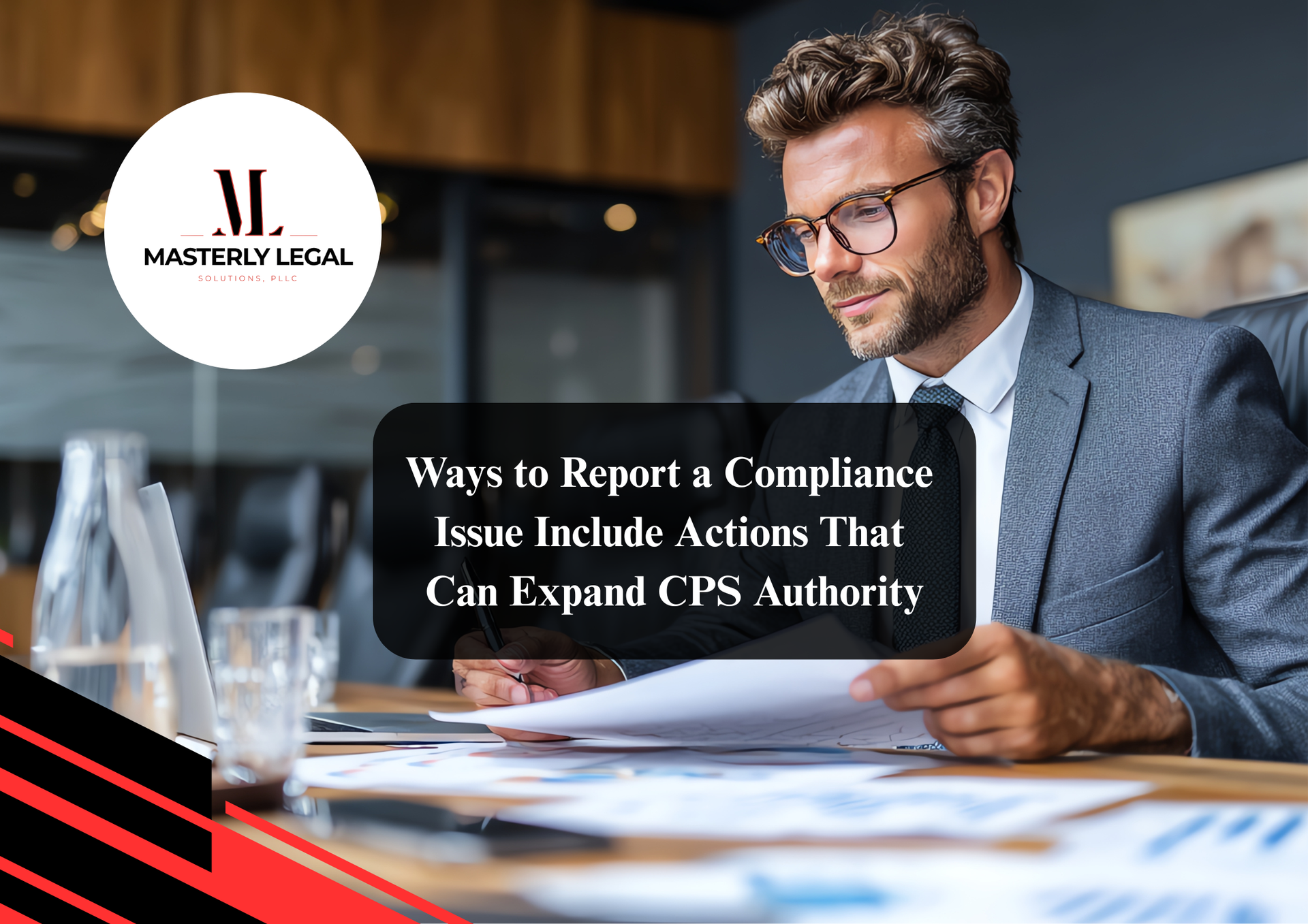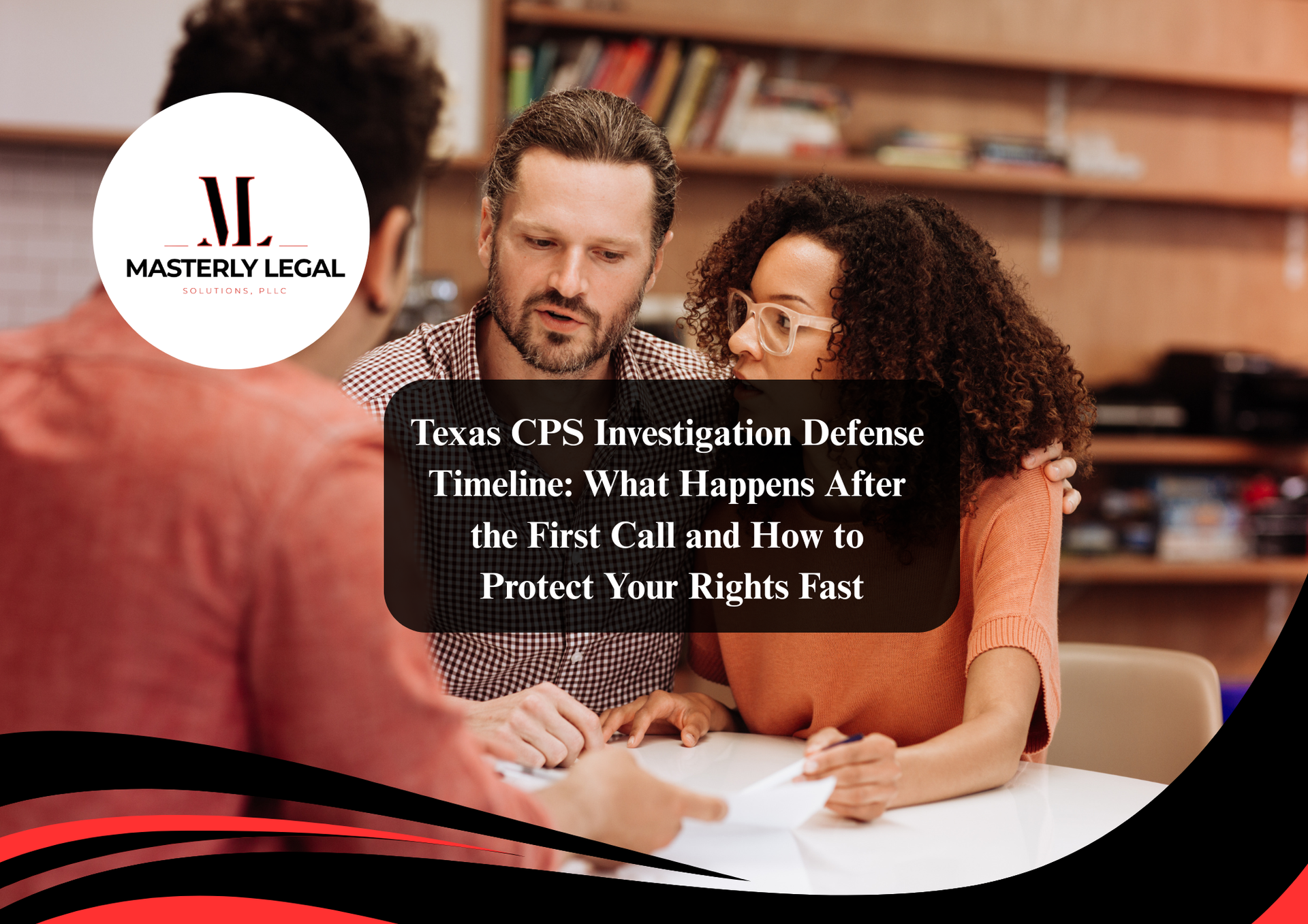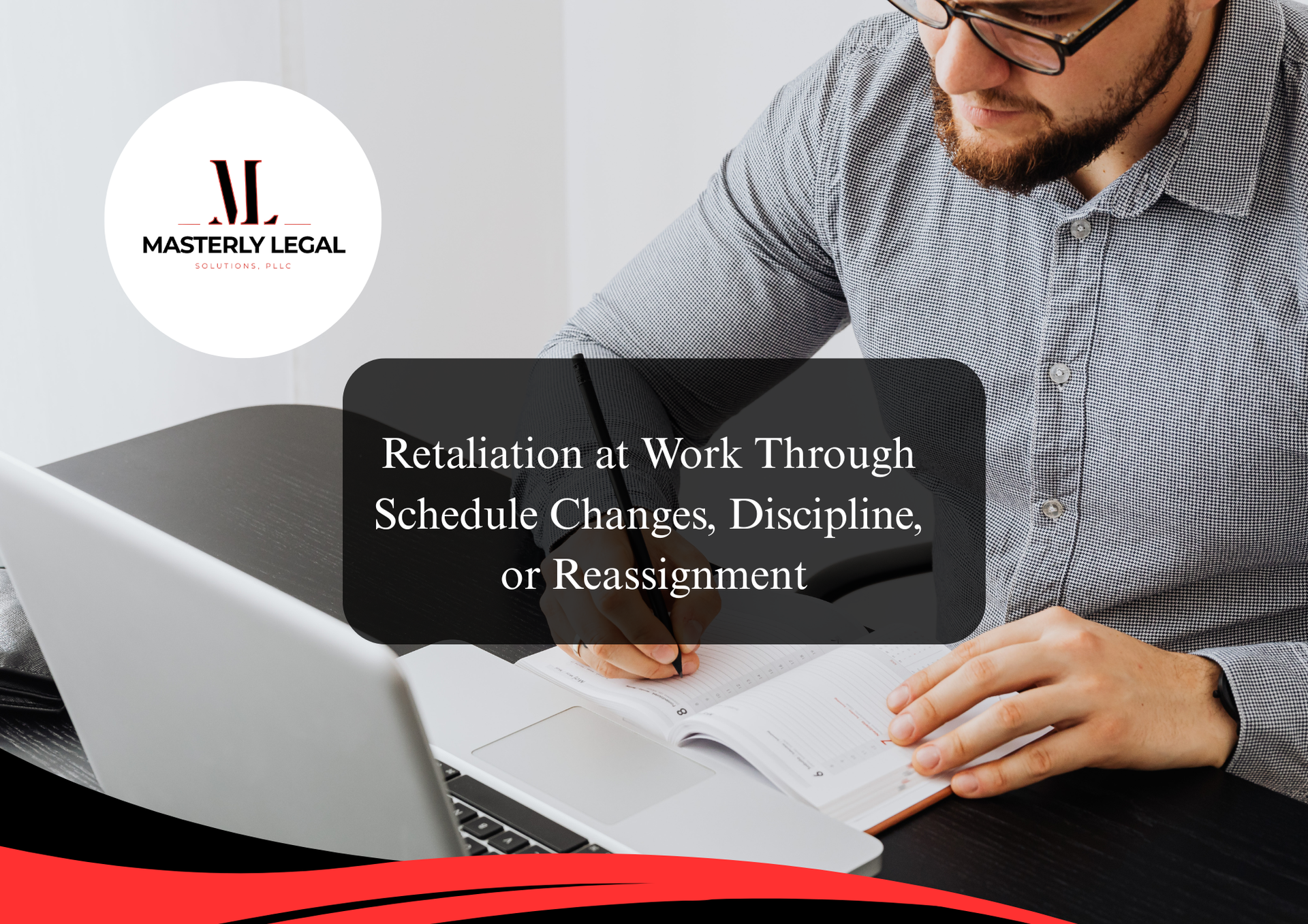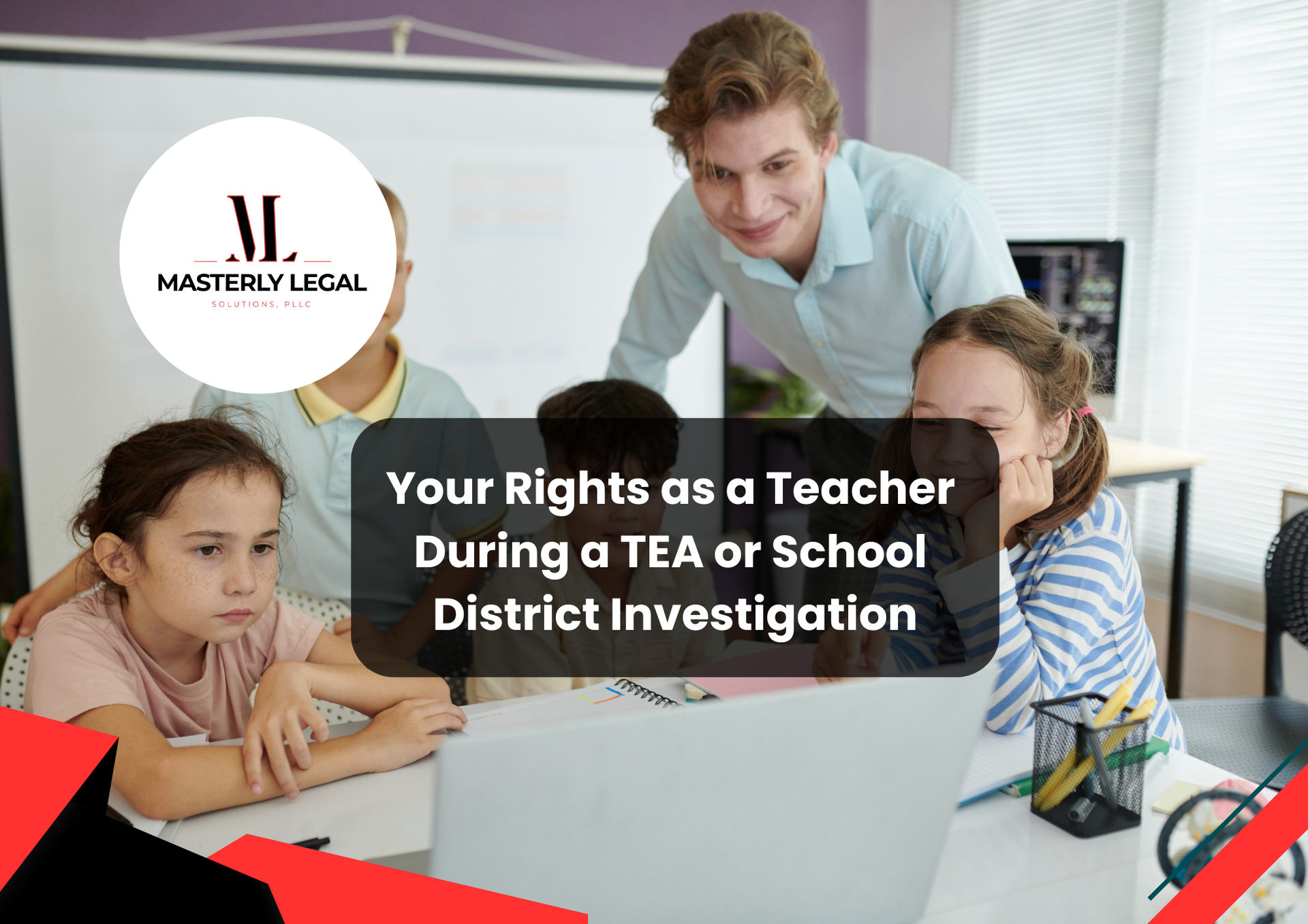When a Student Complaint Becomes a TEA Case: What Teachers Need to Know
In the world of education, few things are more disruptive to an educator’s career than a student complaint that escalates into a formal TEA investigation by the Texas Education Agency (TEA). Many teachers initially downplay student allegations, assuming they’ll be resolved at the campus level. However, ignoring early signs can lead to unexpected and serious legal consequences. As Texas education lawyers with extensive experience representing teachers and educators in these situations, Masterly Legal Solutions understands the complexities of education law—and how fast things can spiral.
This article is designed to equip educators, school administrators, and staff with practical insights on the escalation process, key triggers, and the serious impact of TEA involvement. Whether you work in public education, private schools, or educational institutions offering special education services, knowing your rights and obligations can make all the difference in protecting your career.
The First Sign: When a Complaint Is Filed
Not All Complaints Are Equal
A complaint can start informally—with a student, parent, or colleague expressing concerns about a teacher’s conduct, lesson content, or classroom management style. Sometimes these complaints are resolved internally by school administrators. However, in many cases, especially when allegations touch on issues like:
- Student discipline
- Free speech
- Discrimination
- Sexual harassment
- Special education services
…these concerns quickly rise above the level of routine school matters.
School Administrators’ Role
Most school districts require administrators to report certain complaints to the district’s legal department or directly to the TEA. Educators are often not informed of these referrals until it’s too late to offer clarity or context. This lack of early notice is a major reason why legal issues become legal threats.
How a Complaint Becomes a TEA Case
Mandatory Reporting Obligations
School administrators are legally obligated to report certain types of misconduct—particularly those involving:
- Student safety
- Sexual harassment allegations
- Physical altercations
- Special education rights violations
- Misuse of special education records
Once a complaint falls under mandatory reporting, it enters the purview of state-level oversight.
Referral to TEA's Educator Investigations Division
The Texas Education Agency receives thousands of reports each year. When your name appears in one, the Educator Investigations Division will determine whether an official investigation is warranted. If they proceed, you may receive a formal notice of investigation—often months after the original incident.
What Happens During a TEA Investigation?
You Will Be Notified—But Often Too Late
Many educators are caught off guard when they receive a TEA letter or phone call. The agency’s letter will outline:
- Alleged misconduct
- Potential violations of state or federal law
- Requests for documentation
- A timeline for your response
You should never respond to these letters without consulting an experienced Texas education lawyer.
Types of Investigations
Depending on the nature of the allegations, investigations may involve:
- Student interviews
- Parent statements
- Review of lesson plans or recordings
- Examination of IEP meetings and student records
- Reports from school boards or district personnel
The Legal Ramifications for Educators
Licensure Is at Stake
If the TEA substantiates the complaint, teachers can face:
- Suspension or revocation of their educator license
- Placement on a statewide educator misconduct registry
- Ineligibility to work in public education or certain private schools
This is especially critical for educators serving special needs children under special education laws, where violations may trigger both disciplinary and legal proceedings.
Damage to Reputation
An ongoing investigation can harm your standing in your school system. Even if you are ultimately cleared, the rumor mill and documentation of the process can damage your career prospects.
How Fast Things Escalate If You Don’t Act
Missteps Can Be Costly
Teachers who wait to seek legal advice may unknowingly:
- Say the wrong thing in interviews
- Submit incomplete or contradictory documentation
- Miss deadlines to challenge allegations
- Fail to preserve critical evidence
These errors are rarely fixable after the fact. TEA cases can move from minor concerns to administrative hearings with long-term consequences in a matter of weeks.
The Role of Legal Representation
Why You Need an Education Attorney Early
Working with education attorneys familiar with Texas laws and TEA processes provides several advantages:
- Immediate legal strategy tailored to your school district or educational institution
- Professional drafting of responses to inquiries
- Representation during disciplinary hearings and administrative proceedings
- Protection of your rights under federal and state regulations
Your education lawyer can also act as a buffer, ensuring that communications with investigators remain professional, factual, and in your best interest.
Disciplinary Hearings and Administrative Proceedings
TEA Disciplinary Proceedings Are Formal Legal Matters
Once a TEA case progresses to a disciplinary hearing, the stakes rise significantly. These hearings can involve:
- Sworn testimony
- Cross-examination of witnesses
- Legal arguments regarding free speech, due process, or federal funding violations
Administrative Law Judges and State Board of Educator Certification
Cases may be heard by administrative law judges, with final decisions handed down by the State Board of Educator Certification. These are legally binding decisions—meaning you may need to appeal them in state court if unfavorable.
Common Triggers of TEA Investigations
Some of the most common issues that cause student complaints to escalate include:
- Special education service failures or IEP violations
- Alleged discrimination against students with disabilities
- Alleged harassment or misconduct toward students
- Violations of Title IX policies
- Failure to report suspected abuse
- Inappropriate disciplinary actions
All of these fall under education law matters with potentially far-reaching legal impacts.
Public Schools vs. Private Schools: What’s Different?
Public Education Holds Teachers to Higher Procedural Standards
Public school educators are more directly regulated under TEA oversight due to state funding and obligations to federal law. Private schools may not always trigger TEA involvement—but lawsuits, complaints to accreditation bodies, or federal agencies can still arise.
What About Special Education and IEP Meetings?
Special Needs and Legal Sensitivity
Special education laws are particularly sensitive. Allegations regarding failure to:
- Provide services under an IEP
- Properly document meetings
- Follow required timelines
…can lead to not only TEA scrutiny but also due process hearings under federal special education regulations.
Documentation Is Your Shield
Keeping Records Protects You
If you suspect a complaint could escalate:
- Save all emails, notes, and communications
- Retain copies of lesson plans and student interactions
- Document IEP meetings with timestamps and signed attendance sheets
- Get written confirmation of support from administrators if possible
Your lawyer will need these documents to build a defense during any legal or administrative proceedings.
Understanding Your Rights as an Educator
Teachers facing TEA complaints are not powerless. You have rights under:
- State education codes
- Federal civil rights laws
- Employment contracts
- Collective bargaining agreements
You also have the right to legal representation at all stages of an investigation or hearing.
When Parents and Students Lawyer Up
Don’t Face Lawyers Alone
If students or their parents hire attorneys, they may push for disciplinary action, public apologies, or even financial compensation. You should not engage with those attorneys on your own. Let your education law firm represent your interests.
Avoid These Common Mistakes
Educators often hurt their case by:
- Talking to investigators without counsel
- Assuming administrators will protect them
- Dismissing student complaints as "overreactions"
- Failing to gather supporting evidence early
A simple error can turn into a formal violation. With legal help, many of these problems are preventable.
TEA Cases Can Affect More Than Just Teaching
Long-Term Career Consequences
Beyond license suspension, TEA findings can:
- Block you from applying to other educational institutions
- Show up in future job background checks
- Affect your ability to obtain federal employment or credentials
- Damage your professional reputation across school districts
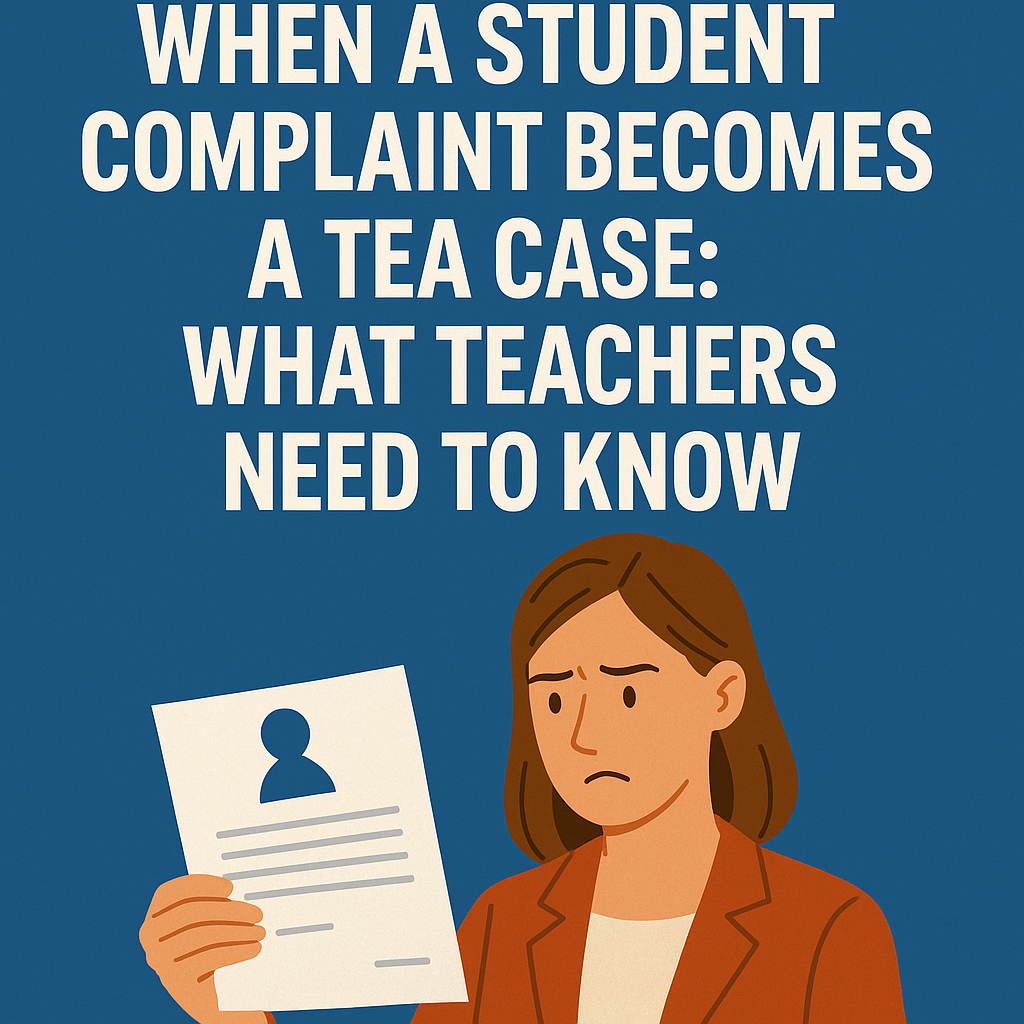
How Masterly Legal Solutions Can Help
As dedicated Texas education lawyers, our firm understands the intricacies of education law, school system operations, and the unique needs of educators. We have extensive experience helping teachers, administrators, and even school boards navigate TEA investigations and related education law matters.
We offer strategic representation tailored to the facts of your case, whether it involves K–12 education, special education services, or Title IX issues. Our team is committed to achieving the best possible outcome for every client.
Why Early Legal Help from a Texas Education Lawyer Matters
Once a complaint escalates beyond the classroom, it enters the realm of education law—a complex area filled with regulations governing school districts and educational institutions across Texas. What may start as a simple misunderstanding can evolve into serious legal issues, especially when state compliance, student rights, or disciplinary procedures are questioned. Engaging a skilled Texas education lawyer early in the process ensures that your rights are protected and that you're following appropriate legal protocols.
Experienced education lawyers understand how different school systems operate, and they can anticipate how the TEA or local boards may respond to the situation. Whether you're a classroom teacher or a school administrator, having trusted legal support can be the difference between resolving an issue quietly or facing long-term professional consequences.
Beyond K–12: Broader Implications for Educators Across All Institutions
While most TEA investigations stem from incidents in public school systems, the ripple effects can reach far beyond K–12 settings. Educators working in colleges and universities, or involved in representing students in various capacities, may also face scrutiny depending on the nature of the allegations. For instance, a teacher participating in an individualized education plan (IEP) meeting or engaging in advocacy for special needs children must follow specific procedures that align with both federal and state regulations.
Failing to adhere to these standards—even during open meetings or IEP sessions—can result in administrative complaints or disciplinary action. Whether you're addressing curriculum issues, conduct matters, or other matters involving school policies, it is essential to work with an experienced advocate or education attorney who understands the full scope of education law across diverse educational institutions.
Speak With an Education Attorney Before It’s Too Late
If you’re a teacher, administrator, or education professional facing a student complaint, don’t wait for things to escalate. These issues can evolve into complex legal matters that affect your license, career, and livelihood. You deserve a legal team that understands education from the inside out—and that’s where we come in.
Contact Masterly Legal Solutions at (972) 236-5051 for a free consultation. Let us answer your questions, review your case, and help you safeguard your professional future before small issues become legal emergencies.
Disclaimer: This article is for informational purposes only and does not constitute legal advice. For legal guidance regarding your specific situation, please consult with a qualified attorney.
Looking for Legal & Business Solutions? Contact Us Now
Fill in the form or call us to set up a meeting

